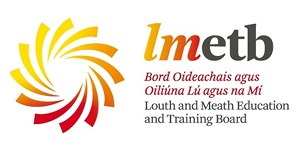Information
Transition Year
Welcome to the Transition Year section of our website! Explore our dynamic, student-focused Transition Year (TY) Programme, a cornerstone of the learning journey at Dunshaughlin Community College
Transition Year is a one year programme offered to students who have completed the Junior Cycle.. TY is an optional year for students – it is not compulsory. It is a unique programme which is designed to act as a bridge between the Junior Cycle and Leaving Certificate courses.
Transition Year is a chance to develop your abilities, uncover hidden talents, explore different learning styles, and engage in new experiences. It’s a time for learning, for personal growth, and fun that will better prepare you for Senior Cycle. You will gain life skills, form lasting friendships, and create memories that will stay with you throughout your life.
We encourage all students to make the most of their TY experience. Enjoy and embrace every moment of this exciting year!
The Transition Year Opportunity
Transition Year at Dunshaughlin Community College offers a wealth of opportunities to enrich your educational journey and personal growth. Here’s what you can look forward to
Skill Development: Enhance a range of new skills, from oral communication to teamwork, and discover your personal strengths.
Career Exploration: Gain insight into the working world through work experience and hear from professionals about their careers. Explore job and career opportunities beyond school.
Academic Enrichment: Catch up on any learning missed during the Junior Cycle and build a solid foundation for the Leaving Certificate programme. Sample and discover new subjects.
Technology Proficiency: Dive into the possibilities offered by computers and information technology.
Experiential Learning: Participate in outdoor pursuits, engage in projects on topics of interest, and learn through real-world interactions outside the classroom.
Independent Learning: Become a more independent learner, skilled at planning, doing homework, and meeting deadlines. Develop more mature student-teacher relationships.
Personal Growth: Develop a better understanding of, and confidence within, yourself; improve your people skills; foster leadership and cooperation skills. Learn about dealing with conflict and civic, social, and political issues.
Future Preparation: Make informed choices about Leaving Certificate subjects, visit third-level colleges and other workplaces, and become more motivated for the Leaving Certificate programme.
Valuable Experiences: Add a valuable set of experiences to your CV, become a more mature person, and enhance your ability to relate to others.
Embrace these opportunities to nurture your talents, discover new ones, and prepare for a successful future in Senior Cycle and beyond.
Overview of Programme
The programme curriculum consists of four layers: the core subjects’ layer, the subject sampling layer, the Transition Year specific layer and the calendar events layer.
Core Subjects layer
- English
- Irish
- Maths
- Modern Foreign Language
- PE
- SPHE
Subject sampling layer
- Geography
- History
- Music
- Business
- Economics
- Home Economics
- Engineering
- Art
- Music
- Accounting
- Politics and Society
- Applied Maths
- DCG
- Construction Studies
- Physics
- Chemistry
- Biology
- Ag. Science
Transition Year specific layer
- Health & Safety
- Coding
- Arts Ed.
- Vocational Preparation Training
- Sign Language
- Olympic Values Programme
- Wellbeing
- Roadsafe
- Lift Leadership Programme
- Community Care
- EPAS
- Environmental Studies
- TY Oscars
Electives:Choose 1 of the following
- Junk Kouture
- Horticulture
- GAA Future Leaders
- Young Social Innovators
- Enterprise
- Debating
- AMTCE FET Pathways Programme
- Work Experience
Calendar events layer
- Team Bonding
- African Drumming Workshop
- First Aid Training
- Movie Magic
- Barista Workshop
- Delphi Outdoor Education Residential trip
- Driver's Education - Irish School of Excellence
- Close Encounters - Self Defence Workshop
- Bodhran Making workshop
- A day in the life of an athlethe experience
- Law Ed
- Guest speakers
- TY Wellfest
- Mini Med Course
- End of Year Hike
Core Subjects layer
- English
- Irish
- Maths
- Modern Foreign Language
- PE
- SPHE
Core Subjects layer
- English
- Irish
- Maths
- Modern Foreign Language
- PE
- SPHE
Competitions
AIB Build a Bank, NNI Press Pass competition, Young Entrepreneur, Francis Ledwidge Poetry competition, BT Young Scientist, Junk Kouture, Angus Beef, AMTCE , Debating, and others as they arise within subjects throughout the year.
TY Teams and Leaders
In order to assist with the day-to-day organisation of TY and provide leadership roles for students in the year group, a number of committees have been established:
- TY Oscars Committee
- Sports Council
- Hoodie Committee
- Administration Team
- Graduation Committee
Each group nominated a leader. When the coordinator/staff member needs assistance in a particular area, they can contact the team leader who will ensure the task is completed.
Teaching methods and approaches
A key feature of Transition Year should be the use of a wide range of teaching/learning methodologies and situations. The goals and objectives of the programme are best achieved in DCC by placing particular emphasis on:
- Negotiated learning
- Personal responsibility in learning
- Activity-based learning
- Integration of appropriate areas of learning
- Team teaching approaches
- Group work: Discussion, debate, interview, role play
- Project work and research
- Visiting speakers and seminars
- Study visits and field trips
- Work experience, work simulation, community service
A Note on Self Directed and Negotiated Learning
One of the aims of TY is to facilitate the move towards self-directed learning. Students may have to research, explore and figure things out for themselves, with the teacher in a more supporting rather than directing role. Students are expected to take much more responsibility for their work, complete all assignments on time and carry out their work to the best of their ability in the hopes of developing more mature, responsible, diligent and flexible learners.
Assessment
Assessment is an integral part of the teaching and learning process. Assessment within Transition Year is school-based. Assessment in TY provides accurate information with regard to student strengths and weaknesses, and facilitates improved student performance through feedback, guidance and affirmation.
Ongoing continuous assessment across the programme is facilitated by the implementation of a credit system and student portfolio. Overall, assessment of TYP in Dunshaughlin Community College has three components: Student Portfolio, Credit system and End of Year Interview.
Student portfolio
A student portfolio/journal has been designed to encompass a range of assessment tools and templates for teachers to record student achievement and progress in subjects/modules/projects. The portfolio includes evidence of achievement in all the areas of study and learning engaged in during the year and incorporates a wide range of personal qualities. It includes:
- Module/project/options evaluation record
- Work experience evaluations
- Trips/Tour evaluations
- Guest speaker evaluations
- Oral presentation assessment templates
- An Gaisce:Information and record sheet
- Photo journal
- End of year interview
- End of year evaluation
The portfolio is evaluated by class tutors weekly. The portfolio informs the allocation of credits for certification purposes and the end of year interview.
The aim of the portfolio assessment is to set up a dialogue between the pupil and the teachers about the pupil’s own learning, to promote the notion of pupil’s owning and taking responsibility for their own learning, to give the pupils the time and space for their learning efforts to be appreciated and to give the time and space for the teachers’ efforts to be affirmed.
Credit system
Each component of the curriculum has a certain number of credits that can be attained, and teachers assign credits based on student completion of projects/assignments, participation and attendance. Core subjects (English, Irish, Maths and Languages) have a written assessment in November and May which are reported on in the End of Term reports.
End of Year Interview
At the end of the year, students are interviewed, and the Student Portfolio provides an evidence-based approach to assigning credits as well as informing the content of the interview.
An award of Pass, Merit, Higher Merit and Distinction will be made based on the student portfolio, interviews and credits gained across the curriculum throughout the programme.
A formal presentation of TY certificates takes place on the Transition Year Graduation night and is an important annual event in the school calendar.
The TY Team and their Roles
The TY team is comprised of Programme Coordinator, Year Head, class tutors and subject teachers under the support and direction of school senior management. The primary focus of the team is to support the students to fully participate in and benefit from the programme.
The Year Head, provides pastoral care to the year group, deals with general issues as they arise, deals with discipline and attendance, looks after the design, planning and implementation of the overall programme. Class tutors support individual class groups, provide pastoral care and monitor daily attendance and notes from parents. Subject teachers plan and deliver the individual modules of the programme and assess the learning.

Communication
Please keep a note of the following contact details for reference:
Programme Coordinator email address: [email protected]
Year Head email address: [email protected]
Work Experience
Work Experience Guidelines:
One of the main aims of Transition Year is to prepare the students for adult and working life. Students in TY engage in one full day of work experience per week. In order to gain as much experience as possible, students need to organise two different placements for the year; one placement from September to December and a different placement from January to May.
It is the students’ responsibility to find a placement of value in an area which interests them from a career point of view. An extension of their part time job is not suitable. Community involvement and volunteering in an organisation are also encouraged as an appropriate and worthwhile work experience opportunity.
Work Experience Opportunities Outside Designated Dates
Students are encouraged to pursue unique and valuable work experience opportunities even if they fall outside the designated calendar dates. Approval must be obtained from Ms. O’Brien in advance. Parents or guardians should submit a request by email detailing the nature and benefits of the placement at least two weeks before the start date. Please ensure all required paperwork is completed and submitted.
TY students are unavailable for extracurricular activities on Fridays.

Preparation
To help students prepare for work experience they will participate in a Work Experience workshop in early September. Students will be provided with all relevant information and documentation to prepare them for the commencement of work experience.
Ongoing support for work experience is facilitated by the Guidance department and class tutors.
Students must submit all relevant paperwork in advance of EVERY work experience placement. Garda Vetting is required for students over 16 working with children or vulnerable adults.
Work Experience Monitoring and Attendance
Each student will receive a Work Experience Diary to document their attendance, which must be signed weekly by the employer. Employers will also evaluate the student’s attitude and performance. The school will monitor progress through regular phone calls to employers. Students must present their completed diary to their tutor for weekly inspection, as it contributes to their end-of-year credit assessment.
Students cannot organise medical/dental appointments on the day of work experience. If a student cannot attend work experience due to illness or circumstances beyond their control, they must inform their employer in the first instance and supply an ‘Absence Note’ in the student journal on the day they return to school.
All documents necessary for Work Experience are available on our Transition Year Links and Documents tab:

